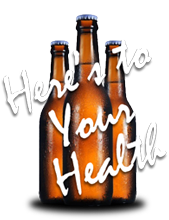A new study has been published comparing certain state alcohol polices and ranking their effectiveness in fighting adult binge drinking.
The study published in the American Journal of Preventative Medicine, “A New Scale of the U.S. Alcohol Policy Environment and Its Relationship to Binge Drinking” seeks to develop a scale, the Alcohol Policy Scale (APS), to measure an aggregate of a state’s alcohol policy environment based on the efficacy of certain alcohol policies to reduce binge drinking among adults and the strength of their implementation. The study measures a variety of state alcohol laws impacting the distribution, sale, and consumption of alcohol.
The policies that were studied included:
- “ABC’s present, functional, adequately staffed”
- “Administrative license revocation”
- “Blood alcohol concentration 0.08/per se laws”
- “Days of sale restriction (Sunday sales)”
- “Dram shop/commercial liability laws”
- “False ID laws”
- “Fetal alcohol syndrome warning signs”
- “Furnishing alcohol to minors prohibited”
- “Graduated driver license laws”
- “Home delivery and direct shipment of alcohol to consumers restricted”
- “Hours of sale restrictions”
- “House party laws, criminal liability”
- “Ignition interlock laws for driving-under-the-influence offenders”
- “Keg registration laws”
- “Local option permissible”
- “Minimum age of server/seller”
- “Minimum legal drinking-age laws”
- “Open-container laws, automobiles”
- “Outlet density”
- “Responsible beverage service training”
- “Retail price restrictions”
- “Sales or service to intoxicated patrons prohibited”
- “Sobriety checkpoints”
- “Social host laws (civil liability)”
- “State alcohol control systems (monopoly)”
- “Taxes (beer only for the purposes of 50-state analysis)”
- “Wholesale price restrictions”
- “Zero-tolerance laws”
Each policy’s efficacy was studied and ultimately given a rating from 1 (low efficacy) to 5 (high efficacy). Some of the policies that scored the highest average include: the existence of state alcohol control systems, outlet density, laws impacting pricing, and a properly funded and staffed ABC.
An analysis of the 2008 APS scores for each of the 50 states and Washington DC compared to the adult binge drinking prevalence in 2009 in each state finds that higher APS scores were strongly inversely associated with the prevalence of adult binge drinking. Meaning, a stronger alcohol policy environment may be associated with a lower prevalence of adult binge drinking.
The conclusion of the study finds that the “development of the APS establishes the groundwork for further studying the effect of the alcohol policy environment in the U.S. and for subsequently assessing the relative impacts of combinations of related policies.”
Although this study only measured policies’ impacts on adult binge drinking, the results likely illustrate that state regulations on alcohol pricing, the number of retail outlets and the consistent application of state enforcement and regulation, among other policies, should be considered as a means address public health concerns such as underage drinking and misuse of alcohol.
Click here to view a summary of the study or purchase it in full.

